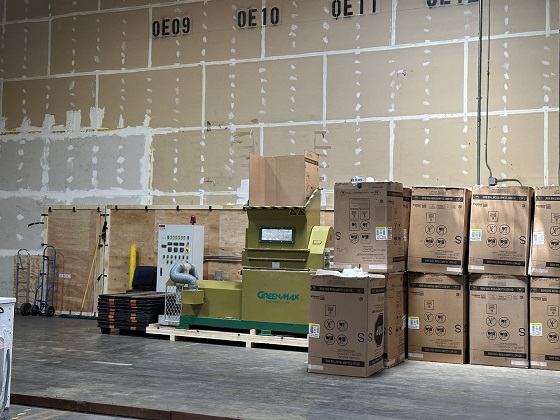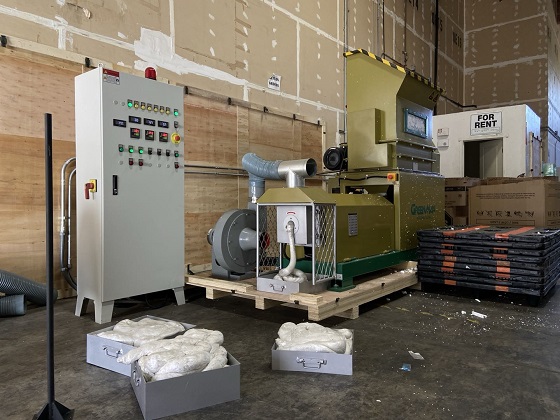How Plastics Circularity Relates to Styrofoam Recycling
In today's world, where sustainability is no longer a choice but a necessity, the concept of plastics circularity has actually gained considerable attention. Plastics circularity refers to producing a closed-loop system in which plastic materials are continually recycled, reused, and repurposed, minimising waste and reducing environmental damage. Expanded Polystyrene (EPS), frequently used in product packaging and construction, plays a critical role in this circular economic. Through efficient Styrofoam recycling, EPS items can be repurposed into valuable materials for a wide range of applications.
This blog explores the concept of plastics circularity, its essential indications, and how expanded polystyrene (EPS) recycling exemplifies these concepts by allowing sustainable reuse and reducing waste.

Recognizing Plastics Circularity
At its core, plastics circularity intends to change from a linear model of "take, make, dispose" to a system where plastic materials are recycled or reused forever. In this circular economy for plastics, waste is considered as a source rather than an issue. By keeping plastics in circulation, we can decrease the need for virgin materials, decrease greenhouse gas discharges, and minimize the quantity of waste sent to landfills.
Nevertheless, not all plastics are just as recyclable. Some types, like Expanded Polystyrene (EPS), frequently face misconceptions regarding their recyclability. Contrary to popular belief, EPS is 100% recyclable. It can be transformed into new products, making it a valuable component of the plastics circularity motion. Among the essential reasons for this is that EPS is a single polymer material. This suggests it can be recycled repeatedly without significant destruction in quality-- unlike multi-polymer plastics that lose integrity with time. This unique feature makes EPS ideal for circular systems, as it keeps its properties through several recycling cycles, ensuring its worth is protected and reused properly in a wide range of applications.
The Role of EPS in Plastics Recycling
Expanded Polystyrene (EPS), frequently known as polystyrene foam or Styrofoam, is a flexible material extensively used in protective product packaging for a range of items, consisting of electrical appliances, whitegoods, seafood, and medications. Despite its widespread utility, EPS has been criticized for being hard to recycle. This is much from the fact. Thanks to advancements in recycling technology and companies like GREENMAX, EPS recycling is now a sensible and sustainable solution, enabling this material to be repurposed effectively and properly.
EPS foam recycling starts with the collection of clean foam packaging. These materials are after that compressed and processed into raw materials, which can be utilized to produce new items, such as building materials, like XPS board for insulating concrete floorings and walls, in residential and commercial construction.
By concentrating on foam packaging recycling, companies and consumers alike contribute to reducing waste Styrofoam, saving resources, and supporting a sustainable building industry.

EPS Recycling in the Circular Economy
EPS recycling is an all-natural suitable for the principles of the circular economy. It shows how materials can be kept in use and out of the environment. Here's why:
# 1 Source Efficiency: EPS is made up of 98% air. This makes it an incredibly light-weight material that calls for very little raw resources to manufacture. By recycling EPS, we maximize the use of existing materials, saving raw materials and decreasing waste.
# 2 Single Polymer Benefit: Unlike multi-polymer plastics, EPS is a single polymer material. This implies it can be recycled repeatedly without substantial degradation in quality. This is a distinct characteristic. It indicates that polystyrene can maintain its honesty via several cycles of use. This makes it a perfect candidate for closed-loop systems in the circular economy (Resource: United Nations Setting Program, 2024).
# 3 Energy Savings: Recycling expanded polystyrene foam calls for significantly much less energy contrasted to producing virgin polystyrene. This process not just decreases the carbon impact of manufacturing but also sustains global efforts to reduce greenhouse gas emissions.
# 4 Waste Reduction: Drawing away EPS from landfills is vital to reducing the ecological impact of plastic waste. Proper recycling systems make certain that valuable materials are repurposed instead of discarded, contributing to cleaner communities.
# 5 Product Change: Recycled EPS is extremely versatile, finding new life as durable items such as void fill for construction, and squeezed out polystyrene sheets. These applications resolve growing needs for sustainable building services while extending the material's lifecycle.
Getting Over Misconceptions About Polystyrene Recycling
Despite its potential, polystyrene recycling is commonly misconstrued. Some typical misconceptions consist of:
EPS is not recyclable: As initiatives like GREENMAX show, EPS is completely recyclable. The difficulty hinges on enlightening communities and providing easily accessible recycling choices, given our local councils are not investing in an EPS recycling system at the kerbside.
Reusing EPS is unworthy the initiative: The benefits of EPS foam recycling far outweigh the perceived inconvenience. Recycling sustains the circular economy, decreases landfill waste, and changes materials into valuable new items.
Recycled EPS has restricted applications: From construction materials to consumer goods like skirting boards and park benches, recycled EPS has a variety of applications, confirming its worth in the circular economy.
GREENMAX: Leading the Way in EPS Recycling
At GREENMAX, we are committed to making EPS recycling accessible and effective. By providing solutions for foam packaging recycling, we turn waste into valuable resources that contribute to energy-efficient homes and sustainable construction. Our process ensures that expanded polystyrene recycling is not just an environmental initiative but also an economic one, supporting industries and reducing costs associated with waste management.
Through partnerships, education, and continued efforts to establish more polystyrene recycling system points, GREENMAX is proud to play a vital role in advancing plastics circularity.

Closing the Loop with EPS Recycling
Plastics circularity offers a sustainable solution to one of the most pressing environmental challenges of our time. EPS, with its lightweight structure and 100% recyclability, exemplifies how plastics can remain in use and out of the environment. By participating in initiatives like GREENMAX, businesses and consumers can actively contribute to the circular economy for plastics, ensuring a more sustainable future.
Does your business generate expanded polystyrene (EPS) packaging waste? Are you ready to close the loop? Contact us & Learn more about how you can become a recycler.
